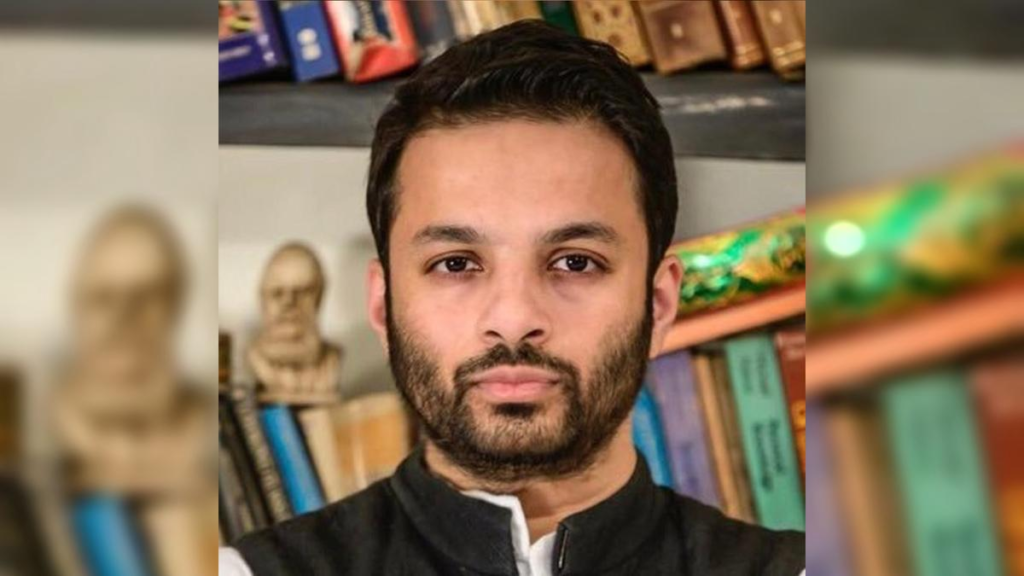Ashoka University faculty have strongly criticized the arrest of Associate Professor Ali Khan Mahmudabad recently, calling the police action “calculated harassment” and expressing deep concern over academic freedom and civil liberties in India.
Professor Mahmudabad, a renowned scholar at Ashoka University’s Department of Political Science, was detained from his home in New Delhi on May 18, 2025, by Haryana Police. He was then moved to Sonipat without first being given timely access to appropriate medical care or notification of his rights under law, as per a press release issued by the Ashoka University Faculty Association.
The professor was arrested after posting a critical analysis of “Operation Sindoor,” India’s recent military operation against terror camps in Pakistan and Pakistan-occupied Kashmir (PoK) on social media. Although the post has been taken down, it was found to be seen by some as controversial by questioning the official narratives, especially about nationalism, communal harmony, and the presence of women in the armed forces.
The faculty association of the university released a formal statement denouncing the arrest and how it was carried out. “We condemn the calculated harassment to which Professor Mahmudabad has been subjected: arrested early in the morning from his home, denied access to necessary medication, and driven around for hours with no communication about his whereabouts,” the statement stated.
The teaching staff asserted that the allegations are “groundless and untenable” and called upon the authorities to let out the professor unconditionally. They characterized Mahmudabad as a scholar intensely devoted to social concord, historical scrutiny, and democratic principles—someone who has always promoted constructive and rational public debate.
The arrest of the professor has set off mass debate within the academic community and civil society, with many interpreting it as an attack on freedom of expression and dissent. Many students, colleagues, and public intellectuals voiced their support for Mahmudabad on social media and demanded firmer institutional support from Ashoka University itself.
Ashoka University was also questioned further when there were raised eyebrows about the administration’s subdued reaction. While there was strong outrage expressed by the faculty association, the central administration of the university put out a mere note condemning the act and saying that it was trying to find out about the legal case and was working with the authorities.

Ashoka University: Is academic freedom at risk?
The arrest has led several to question: Ashoka University, with its reputation for upholding liberal arts and critical thinking, is now facing a test of its core principles—can it safeguard its faculty members against state excesses? Established in 2014 and based in Sonipat, Haryana, Ashoka University has established itself as one of the top private liberal arts universities, frequently facilitating debate on politically charged topics. But this arrest has raised concerns that even well-respected institutions are not immune to increased pressures on academic freedom.
This is not the first time Ashoka University has been at the center of a national debate. In 2021, the resignation of prominent economist Professor Pratap Bhanu Mehta over concerns about lack of institutional support for academic expression stirred a nationwide conversation. Many now compare the current episode with past controversies that hint at growing discomfort among academic voices engaging critically with state policies.
High-profile lawyer and senior advocate Kapil Sibal got the case heard in the Supreme Court on Mahmudabad’s behalf. The plea is to be heard by the court soon, as doubts are raised regarding the arrest’s legality and motive. Experts note that the case will be based on constitutional safeguards under Article 19, which entitles freedom of speech and expression.
In their public statement, the faculty community emphasized that “any attempt to criminalize academic commentary, particularly by a scholar of Mahmudabad’s integrity and reputation, erodes the democratic fabric of the country.” They also cautioned that there could be a chilling effect on scholarship if dissent would be criminalized based on vaguely defined charges.
Political responses to the arrest have also been immediate. Opposition politicians condemned the arrest as abuse of state apparatus to quiet intellectual opinion. “This is not about any one professor, it’s about quieting a generation of thinkers,” wrote a top Indian National Congress member on Twitter. Government officials have, on the other hand, insisted that the law should run its course and have declined to make elaborate statements.
Ashoka University students have also initiated solidarity events and online campaigns, pushing the university administration as well as the wider academic community to call for justice. A number of student groups have placed petitions on due process and the professor’s release, laying claim to the fact that freedom to criticize government policy is the bedrock of democratic education.
International academic communities, also, are keeping an eye on this. Scholars at institutions in the U.S., U.K., and Europe have started making statements of solidarity, cautioning that silencing academic voices would damage India’s international academic reputation.
In spite of the whirlwind of outrage, the Ashoka University administration has till now remained vague on whether they will take a principled position beyond their procedural statement. Onlookers opine the incident might be a turning point for the university’s identity and reputation.
At the moment, Professor Mahmudabad is still in detention, awaiting legal action. The case has already become emblematic of a wider struggle between academic freedom and political sensibilities in modern India.
With the country’s highest court now engaged, all eyes are on whether the judiciary will uphold the rights of scholars to speak out politically without fear of state retaliation.
ALSO READ
Lovely Professional University Ends Ties with Turkey and Azerbaijan
SRCC Introduces Debating Masterclass 2025: A Unique Opportunity for High School Students
Pingback: IIMC to Introduce PhD Course in Mass Communication and Journalism
Thanks for a marvelous posting! I really enjoyed reading it,
you can be a great author. I will be sure to bookmark your blog and will eventually come back
someday. I want to encourage one to continue your great job, have a nice day!